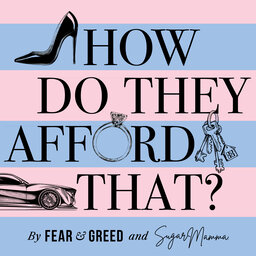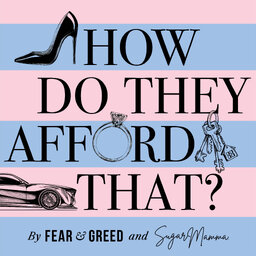Help - I'm spending $500 a week more than I earn
What do you do when your spending exceeds your income? Join Canna Campbell - a financial planner for 20 years - and Fear & Greed's Michael Thompson as they deal with a rather uncomfortable reality of budgeting.
The information in this podcast is general in nature and does not take into account your personal circumstances, financial needs or objectives. Before acting on any information, you should consider the appropriateness of it and the relevant product having regard to your objectives, financial situation and needs. In particular, you should seek independent financial advice and read the relevant Product Disclosure Statement or other offer document prior to acquiring any financial product.
Canna Campbell is a Corporate Authorised Representative and Corporate Credit Representative of Wealthstream Financial Group Pty Ltd ABN 35 152 803 113 Australian Financial Services Licensee AFSL 412079.
In 1 playlist(s)
How Do They Afford That?
How Do They Afford That: the podcast that peeks into the financial lives of everyday Australians. Ev…Social links
Follow podcast
Recent clips

The kids' money blueprint
27:45

Money basics you don't know (but everyone assumes you do)
22:26

7 signs you're better with money than you think
19:55
 How Do They Afford That?
How Do They Afford That?